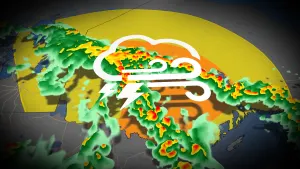
Genetics and allergies: Is there a link?
"There is a certain role for a genetic predisposition, but it’s not one gene that has a defect, and if you repair that defect, you won’t have an allergy."

Courtesy: Getty Images
Parents who are worried their children may one day develop allergies may be tempted to seek answers in their genes.
But Dr. Thomas Eiwegger, Staff Physician in the Department of Immunology and Allergy at SickKids Hospital in Toronto, says genetics alone aren’t enough to help predict whether you or your children are likely to have allergic reactions to seasonal pollens.
Eiwegger says though you can be more susceptible to certain kinds of allergies, such as ragweed, if your parents are allergic, that wouldn’t guarantee you’d develop an allergy yourself.
"There is a certain role for a genetic predisposition, but it’s not one gene that has a defect, and if you repair that defect, you won’t have an allergy," Eiwegger told The Weather Network. "So there are multiple genes involved, and to make it more complex, these genes interact with the environment, and this is why we are having such a hard time in finding a good cure for it."
RELATED: 5 effective ways to defeat allergies
As such, Eiwegger says, people looking for explanations are likelier to find them in the environment around them rather than in their genetic code.
As evidence, Eiwegger points to the fact that allergy rates among the general population were much lower 50 years ago…too short a time frame to be explained by changes in genes, which Eiwegger says would require hundreds or thousands of years to reach the point where allergies would affect five to 20 per cent of the population, not just a couple of generations.

Image: Recent research suggests certain kinds of foods can shore up your immune system, particularly those rich in probiotics, vitamin D, omega-3 acids and antioxidants, so modifying your diet is a good bet. Courtesy: Getty Images
"You need something from the outside that makes it happen," he says.
What might that something be? Eiwegger says certainly pollens have changed somewhat due to environmental changes, such as pollution, but the physician says it’s not clear that is the reason. What HAS changed for sure, he says, is the way people live.
SEE ALSO: When allergies turn dangerous
For example, our homes are much cleaner, and built differently, and children are exposed to allergens in a different way than they previously had been. Changes in diet may also be a factor, Eiwegger says.
"There were recommendations not to introduce certain foods early in life, and we now more and more understand that this was probably not the best recommendation," Eiwegger says.
He adds: "The environment does a lot, and in order to restore this balance, we have to find out which factors from the environment can be used in a positive way to achieve…a good balance between the environment and our immune system."
Eiwegger says research is ongoing into just how to prevent the burden of allergies, but until concrete answers emerge, the doctor says we don’t know enough to decide how to change our lifestyles, or our children’s lifestyles, to maximize the chances of not developing them.
"For example, if you want to prevent inhalants or allergic asthma, you cannot keep your child away from these allergens, and there is no right way to do it," Eiwegger says. "So you should just be receptive to how your child is reacting to these allergens."










